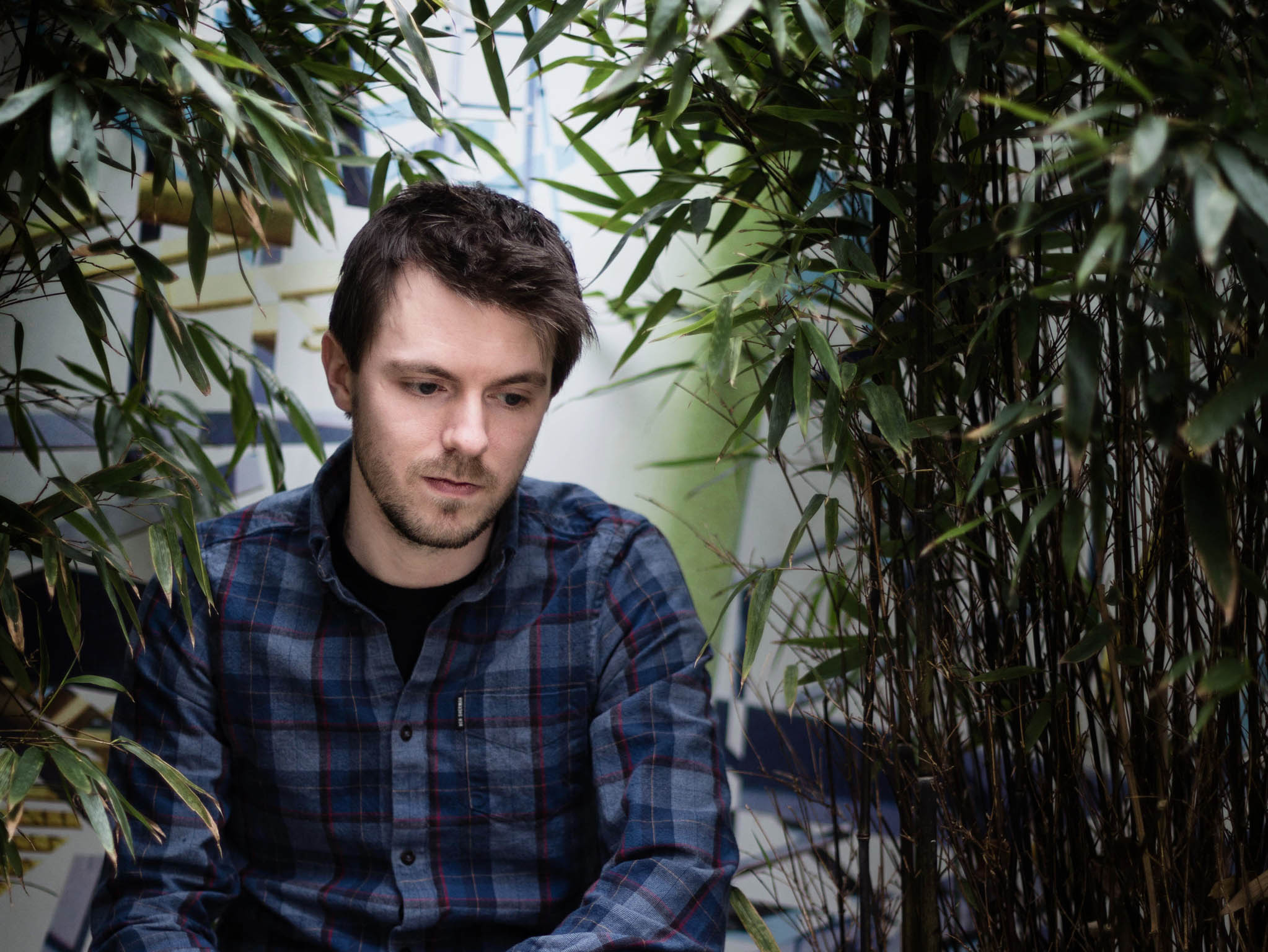Alistair McDowall: the pioneering young playwright on setting a play on Pluto and sympathising with his critics
The future of British theatre is here – and damned if he’s going to be Earth-bound

Your support helps us to tell the story
From reproductive rights to climate change to Big Tech, The Independent is on the ground when the story is developing. Whether it's investigating the financials of Elon Musk's pro-Trump PAC or producing our latest documentary, 'The A Word', which shines a light on the American women fighting for reproductive rights, we know how important it is to parse out the facts from the messaging.
At such a critical moment in US history, we need reporters on the ground. Your donation allows us to keep sending journalists to speak to both sides of the story.
The Independent is trusted by Americans across the entire political spectrum. And unlike many other quality news outlets, we choose not to lock Americans out of our reporting and analysis with paywalls. We believe quality journalism should be available to everyone, paid for by those who can afford it.
Your support makes all the difference.Last year, there was one word on every in-the-know theatregoer’s lips: Pomona. Alistair McDowall’s dystopian drama, which imagined the horrors lurking beneath an abandoned strip of land in the centre of Manchester, was treacle-black and wickedly funny, with a twisting, non-linear chronology that was correspondingly nightmarish.
Pomona was feverishly championed by bloggers, critics and theatre-makers alike, with McDowall, still only 28, practically hailed as the future of British theatre – something that seems increasingly likely, given his latest play, X, is on at the Royal Court. In the main space. Starring Jessica Raine. Directed by the theatre’s head, Vicky Featherstone.
“Yeah! I am as surprised as you,” says McDowall, with smiling self-deprecation. For the record, I’m not all that surprised: this is just the sort of ambitious play the Court ought to be championing.
X is set on Pluto, where a mission loses contact with Earth; all they can do is wait to be rescued. Time can stretch in strange ways on a planet where the natural rhythms of day and night are so different to Earth’s. As they face the fact that they’re all stuck in one room with their work colleagues indefinitely, things get… intense.
“It’s really about people being trapped: what does that amount of time in that enclosed a space do to you?” asks McDowall.

“What do you do with your life, once you’ve realised, ‘I’ve only got this amount of time, I’ve got X’ – and you have to spend it in a box with people you’ve work with every day and you don’t like that much and it’s a ballache?” He pauses, then adds: “I’m making it sound very grim. There are jokes in the play! As there should always be.
X might be set on Pluto, but McDowall insists it’s not really science fiction. “Although this play has the most obvious genre trappings of anything I’ve done – it’s space; there’s a space suit in it – I don’t think I could comfortably class it as science fiction: it’s a relationship drama that just happens to be set in space.”
It’s not the first time his work has been dubbed sci-fi, however: both Pomona and Brilliant Adventures – a play that featured a time machine – were given the tag, though McDowall claims those plays are really a detective story and a Western respectively. “I think there are people who are going to want X to be Alien, but really it’s about ‘Who am I?’”
Still, he acknowledges a hint of sheepishness at handing in a script set on Pluto to the Royal Court. “When I was doing it, [I thought] this is ridiculous! One half of me was going, it’s theatre, you can do whatever you want. But then the more practical part of my head was like, well, you didn’t tell ’em you were doing a play about Pluto…”
As a teenager growing up in the rural village of Great Broughton near Middlesbrough, McDowall dreamt of being a filmmaker, but he couldn’t afford a camera, so started writing drama instead.
He’d accidentally, stumbled on his perfect medium; today, he’s interested only in writing plays that absolutely have to be plays, that fully exploit theatre’s unique potential as a live, collective experience.
“I’m always looking for more ways I can cook the liveness at a higher temperature,” he begins. “That’s the whole point of doing a play, right? We’re all there at the same time. I want to have a moment when the temperature in a room changes significantly.”
X will, he promises, be “quite aggressively theatrical,” and the script is rich with mind-bending, knotty experiments with form. “I’m not interested in making complete logical sense at every moment.
"My favourite filmmaker of recent years is Shane Carruth; he made Primer and Upstream Color, which have no interest in whether you’re ‘following’ them – what’s interesting is that they’re telling stories through different means, through an unconscious heartbeat. That’s my deal, really: trying to find new ways of wrestling with basic story mechanics. To do that in a room full of people is really exciting.”
No spoilers here, but I predict that this refusal to tie up X’s narrative “in a nice bow” will likely divide audiences.
Still, McDowall is used to that: Pomona’s explicit language and violence prompted walk-outs – reported gleefully – when the show debuted at the Orange Tree in genteel Richmond at the end of 2014, where it was credited with overhauling the reputation of the theatre as part of Paul Miller’s new reign as artistic director.
Given the experimental nature of his writing – and his vehement arguments about the need for it to be uncompromisingly theatrical – I expect McDowall to be an opinionated, visionary young gun when I ask about the state of British theatre.
Not so. Not only does he politely demur from giving big sweeping answers to such questions, but he’s even remarkably sympathetic to people who actively dislike his work. “People were a bit mean about the Orange Tree, because their clientele is older.
"But people probably walked out because they were bored, not necessarily because they were like, ‘What a disgrace!’” he laughs, before pointing out that there were also walk-outs at the National Theatre and the Royal Exchange in Manchester, where McDowall lives with his wife.
“I completely sympathise. I feel bad if someone feels like they’ve given up an evening of their life, got a babysitter… and they hated it. At the Exchange, they had an event with friends of the theatre and it was basically a room full of very nice old ladies. Some of them had very clearly really hated Pomona, but because I was so friendly, no one said that to my face. I’m always very polite – I was brought up well!”
He certainly was: McDowall is very considerate, the sort of young man your grandmother would love if he should happen to sit next to her in the stalls.
Although she might be a bit freaked out if it was one of his plays – especially given that the dark, unsettling atmosphere he creates on stage actually comes from his own personality.
“I have various issues with anxiety,” he explains, “and usually there’s a character who is a bit jittery and nervous and talking like I am now” – although most of his answers are beautifully fluent, McDowall can get stammeringly nervy.
“But what’s weird in Pomona and X is that that anxiety has wormed into the form of the play: the whole play feels anxious.”
Don’t hold your breath for a light-hearted romcom from his pen, then. So what can we expect next? He’s not sure, “but I don’t think I’m going to do another space play for a while”.
Does he worry that the genre thing might stick, that he might become… “Mr Sci-fi? I guess I do a little bit. That’s not what the next play is going to be! But I don’t really mind – it’s nice when anyone thinks anything of you, right?”
‘X’ is at the Royal Court, 30 March to 7 May
Join our commenting forum
Join thought-provoking conversations, follow other Independent readers and see their replies
Comments